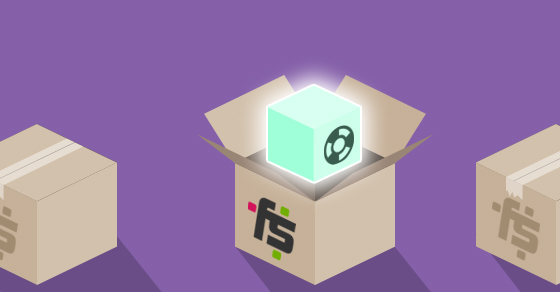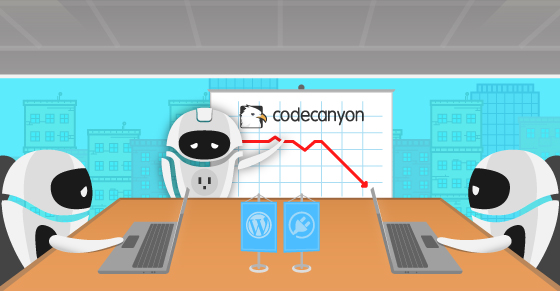|
|
Superstar physicist Sir Isaac Newton famously admitted that, “If I have seen further, it is by standing on the shoulders of giants.”
Why not steal a trick from his stance and learn from the successes of accomplished plugin developers to help in creating your next project?
In this article we’ll go through some top tips from the developers behind three of the top WordPress plugins out there: NextGEN Gallery, Easy Digital Downloads and WordPress SEO by Yoast.
Let’s start with some introductions.
Introducing Our Three Premium Plugin Makers
 Pippin Williamson is the lead developer for AffiliateWP and the founder of Easy Digital Downloads, a complete e-commerce plugin for selling digital products through WordPress which boasts over 700,000 downloads. He’s also the founder of Restrict Content Pro, a plugin for managing and selling memberships and premium content.
Pippin Williamson is the lead developer for AffiliateWP and the founder of Easy Digital Downloads, a complete e-commerce plugin for selling digital products through WordPress which boasts over 700,000 downloads. He’s also the founder of Restrict Content Pro, a plugin for managing and selling memberships and premium content.
 Erick Danzer is the CEO of Photocrati Media; makers of NextGEN Gallery, an extremely popular plugin with over 13.5 million downloads. Danzer graduated Summa Cum Laude from the Marquette’s School of Business in 1998 and holds master’s degrees in both Applied Economics and Political Science, plus a PhD in Political Science. He founded Photocrati Media in 2009.
Erick Danzer is the CEO of Photocrati Media; makers of NextGEN Gallery, an extremely popular plugin with over 13.5 million downloads. Danzer graduated Summa Cum Laude from the Marquette’s School of Business in 1998 and holds master’s degrees in both Applied Economics and Political Science, plus a PhD in Political Science. He founded Photocrati Media in 2009.
 Joost de Valk is the founder and CEO of Yoast, which focuses on SEO consulting, WordPress optimization and online marketing and content strategy. His clients include eBay, Facebook and the European Patent Office. Before founding Yoast, Joost worked at a variety of online marketing agencies and advised companies such as KLM and the Dutch Financial Times. His series of WordPress plugins have been downloaded over 30 million times!
Joost de Valk is the founder and CEO of Yoast, which focuses on SEO consulting, WordPress optimization and online marketing and content strategy. His clients include eBay, Facebook and the European Patent Office. Before founding Yoast, Joost worked at a variety of online marketing agencies and advised companies such as KLM and the Dutch Financial Times. His series of WordPress plugins have been downloaded over 30 million times!
Let’s perch awhile on the shoulders of these plugin development heavyweights and see what we can learn about making your next plugin a success.
1. Your WordPress Plugin Needs a Sustainable Business Model
Like many WordPress businesses years ago, we started selling themes with lifetime support for a single price. This is obviously not a sustainable business model. You have growing support demands and need to find a constant stream of new customers month after month, year after year to survive. – Erick Danzer discussing initial revenue models.
We contacted Erick Danzer recently via email and he struck a cautionary note regarding the use of freemium models by plugin developers: “If you are planning to use a freemium model where you release a free plugin on the repository and sell upgrades or extensions, understand that continued support of a free plugin can be expensive. If it becomes popular, you may need one or more full-time salaries just to develop and support a free plugin that’s not generating revenue on its own. So you’ll want to be confident that premium sales will cover not just the development and support of your premium extensions, but of the base free plugin as well.”
NextGEN Gallery has solved this problem by selling a product with automatic annual renewals. Users can cancel and still use the product but most will continue to pay to take advantage of active development and excellent ongoing support.
There are many viable business models out there but you need to do your homework early and make sure the figures have a chance of adding up for your particular plugin.
Pippin Williamson also stressed the importance of being sure your plugin is really solving user problems as part of identifying a viable business model: “You don’t have to build something unique, but you do need to solve a problem. If you solve a problem better than someone else and you make it easy for users to see and understand that you have solved that problem, you will do well”.
2. Look After Your Customers by Offering Reliable Support for Your Plugin
Providing quality customer support and doing so consistently is a challenge but it is a vitally important aspect of maintaining a successful business and for maintaining a good reputation among customers and colleagues. – Pippin Williamson on the importance of taking care of your customers.
Williamson has stressed the importance of finding a system that worked well for him and his team. Once that was in place, it was simply a matter of responding to support tickets in a timely way.
Erick Danzer also echoed this focus on support in our email exchange: “It’s huge for us as a value and principle. We have great premium support, but we also provide some of the most active and effective free support of any major plugin on the WordPress repository. I think the effect of providing great support, especially free support on the WordPress forums, can be subtle. Even if the impact is subtle, we’ll keep doing it because we believe in it.”
It is at the pinnacle of everything that’s important to a successful business. Without good customer support, you either slowly or rapidly fail. Focus on your customers day 1, 2, 3, and 15,000. Each and every day. – Pippin Williamson on customer support.
At this stage of the game, customers rightly expect top-notch customer support with any paid plugin. Make sure you’re matching market expectations with your own product.
3. Find Your Favourite Part of Building Plugins and Stick With It
There are many roads that lead to Rome, you might as well pick the road you actually enjoy. The most important aspect of all of this is having fun and stopping every once in a while to consider what you’re doing. For me it also meant outsourcing much of the financial part of the business to an accountant, so I don’t have to worry about all that.” – Joost de Valk on sticking to your strengths.
Williamson makes a similar point and recommends diving into subject matter that interests you personally: “Start by writing a plugin or theme that scratches your own itch. If you are passionate and care deeply about the problem you are working to improve or the product you are creating, others will follow. It may not be a smashing success out the gate, but be consistent in your passion and your drive and others will absolutely notice.”
The best plugins tend to concentrate on solving one major problem comprehensively rather than attempting to be all things to everybody. Find the problem you know your skills will let you conquer and go deep on it.
4. Leverage Your Existing Resources
One of the biggest mistakes I made was not taking advantage of my email list from the beginning. At one point I realized that I had over 30,000 people on an email list, yet I hadn’t sent them a single email in over six months. Not only was I paying for the MailChimp account that had the 30,000 emails, I was losing out on so much potential revenue by not utilizing that list. – Pippin Williamson on the importance of email list management.
The amount of detail and effort that goes into making a premium plugin really shine means it’s easy to overlook other resources you may have in your business that could drive further success. Make sure you’re taking full advantage of all the tools at your disposal.
Lessons Learned
By building on the experience of successful plugin developers, you can make sure you have the basics dialed in from the beginning and give your plugin the best possible chance of success. Let’s recap the points we covered:
- Build a sustainable business model.
- Pay huge attention to customer care.
- Love what you do.
- Use everything you’ve got.
What’s the best tip you’ve picked up from an experienced plugin developer? Let us know in the comments section!








Good article! Not everyone understands the importance of the 2nd point: support. In my opinion, it may be the most important thing that can give us the success in WordPress community.
Hi Rilwis,
Thank you! I agree, customer support is very important for the success of your plugin.
Cheers,
Tom